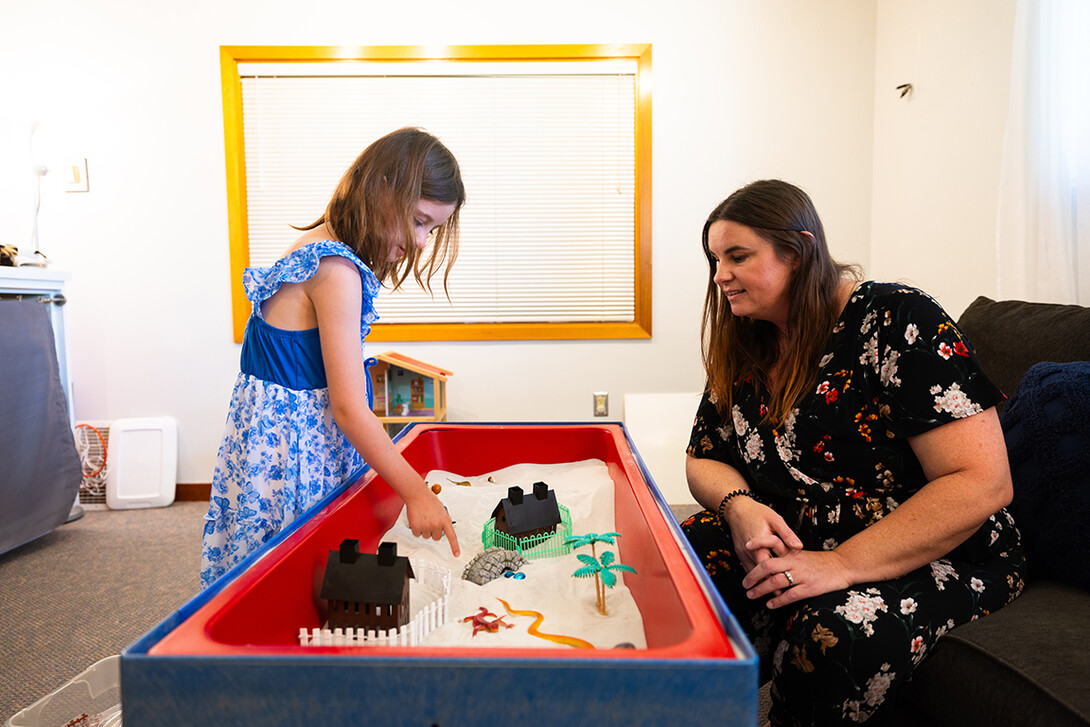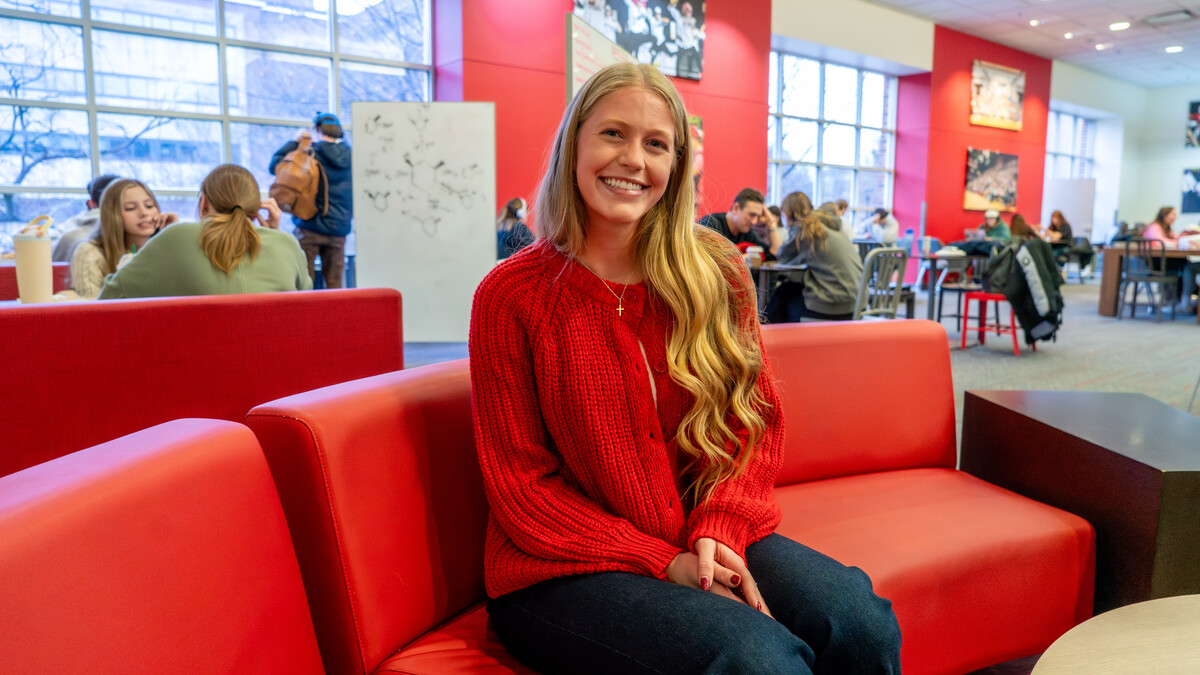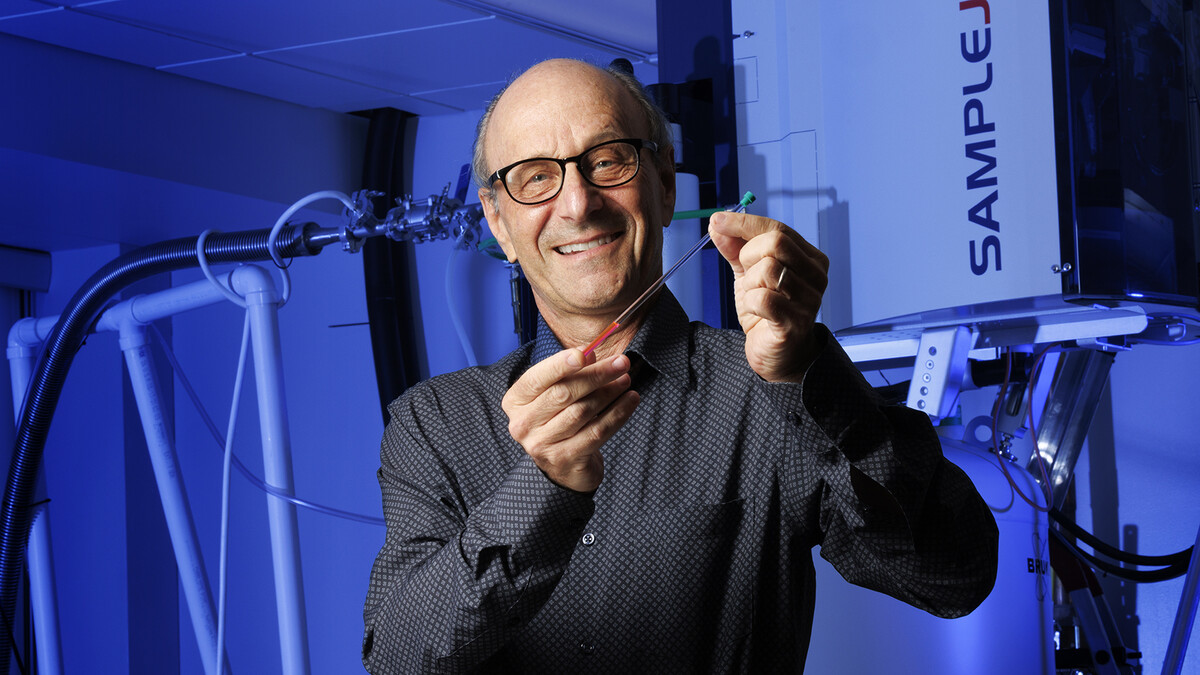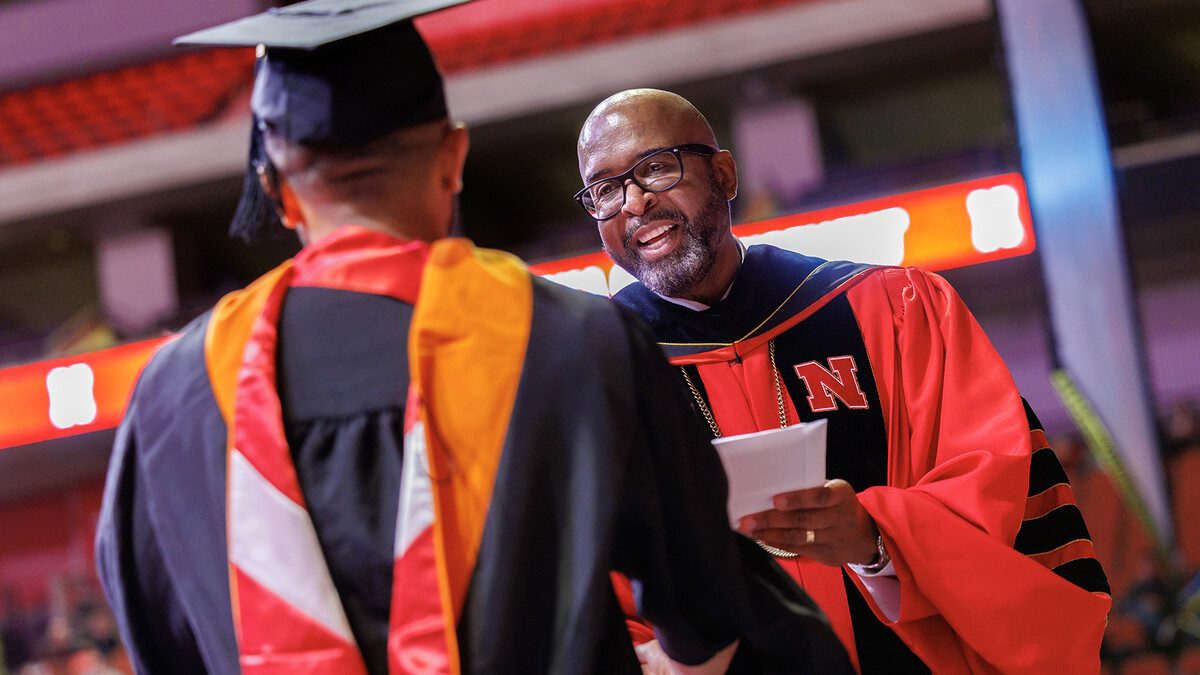
Sometimes healing starts with an attentive, non-judgmental and well-trained ear, and the University of Nebraska–Lincoln’s Couple and Family Clinic, housed in the College of Education and Human Sciences, works to expand access to that resource.
The clinic offers mental health services for individuals, couples and families struggling with depression, anxiety, symptoms of trauma, parenting, or other challenges impacting their lives. They reach clients both in person and via telehealth with the goal of connecting more Nebraskans to mental health services.
“When you’re working with people and they’re sharing the hardest things that are happening in their lives, they deserve somebody who can listen with curiosity and not judgment,” said Carrie Hanson-Bradley, certified marriage and family therapist, associate professor of practice and program director of the Marriage and Family Clinical Training program.
The clinicians are second-year graduate students in the marriage and family therapy program. Each session is also supervised by a doctoral-level mental health provider.
By contributing to the number of clinicians as well as offering telehealth services, Hanson-Bradley said the Couple and Family Clinic can help fill a gap in service that exists across the state, but especially in rural areas. According to the Behavioral Health Education Center of Nebraska and University of Nebraska Medical Center, 88 of Nebraska’s 93 counties have a shortage of mental health care providers, making telehealth support particularly important for those living in provider shortage areas.
“In Lincoln, if you need services, there are quite a few providers,” Hanson-Bradley said. “When you live in a rural environment, there aren’t as many providers, and not having access to resources can increase stress in a lot of different ways.”
The clinic offers a sliding cost scale based on income, which makes service more affordable and accessible than some other clinics, especially for those who are uninsured. Hanson-Bradley said the majority of clients pay less than $50 a session.
In addition to learning basic therapy skills, students in the program receive specialized training in identifying and treating attachment and trauma-related symptoms. Hanson-Bradley said understanding the role attachment and trauma play in issues like depression and anxiety can be key to understanding how to ease symptoms.
“When people think about trauma, they often think about really big experiences, but the reality is all of us have experienced things where our nervous systems had a hard time processing what was happening, and that can have a long-term impact on our lives,” she said. “You might have an experience as a child that impacts your relationships later in life. We work with people to try and understand how and if trauma is contributing to whatever the presenting issues are.”

Hanson-Bradley said there has been more attention on trauma in the mental health field in recent years. Trauma impacts everyone to a different degree, knowing how it might influence one’s mood, ability to handle stress, or relationship issues results in more effective treatment.
"Lots of people present with depression or anxiety. If we don’t look at how the impact of trauma might be contributing to those symptoms, things probably aren’t going to get better,” Hanson-Bradley said. “By teaching our student that trauma is a common thread, they’re better prepared to help treat the whole person, not just the presenting symptoms.”
Emily Abernathy, a second-year marriage and family therapy master’s student who works in the clinic, said this training helped her feel more prepared to treat a wider variety of struggles a client might bring into her office.
“We have these really violent depictions of what trauma is, when trauma is a much more broad experience of how the brain interprets it,” Abernathy said. “(It’s important to be) ready for anything that comes through the door.”
In the early stages of practicing as a therapist, Abernathy said the guidance of experienced faculty is crucial to building her skills. She said the faculty are supportive and compassionate in their instruction and have helped her learn strategies to provide better care.
“You have someone in front of you telling you about the worst experiences of their life, and sometimes you have to jump right into the deep end, but you’re never alone in the deep end,” she said.
Her first year being clinically active has taught Abernathy how to be curious and humble with her clients, she said. Asking questions about the person’s own experience is more effective than making assumptions about them, she said.
“You never want to come from a place of superiority,” Abernathy said. “People don’t like being told what their own experience is, don’t like being told what they’re thinking or what they’re feeling. They want a place to tell their story and then be met with, ‘I hear you and I see you.’”
To contact the Couple and Family Clinic about accessing mental health services, call 402-472-5035 or email couplefamilyclinic@unl.edu for more information.







